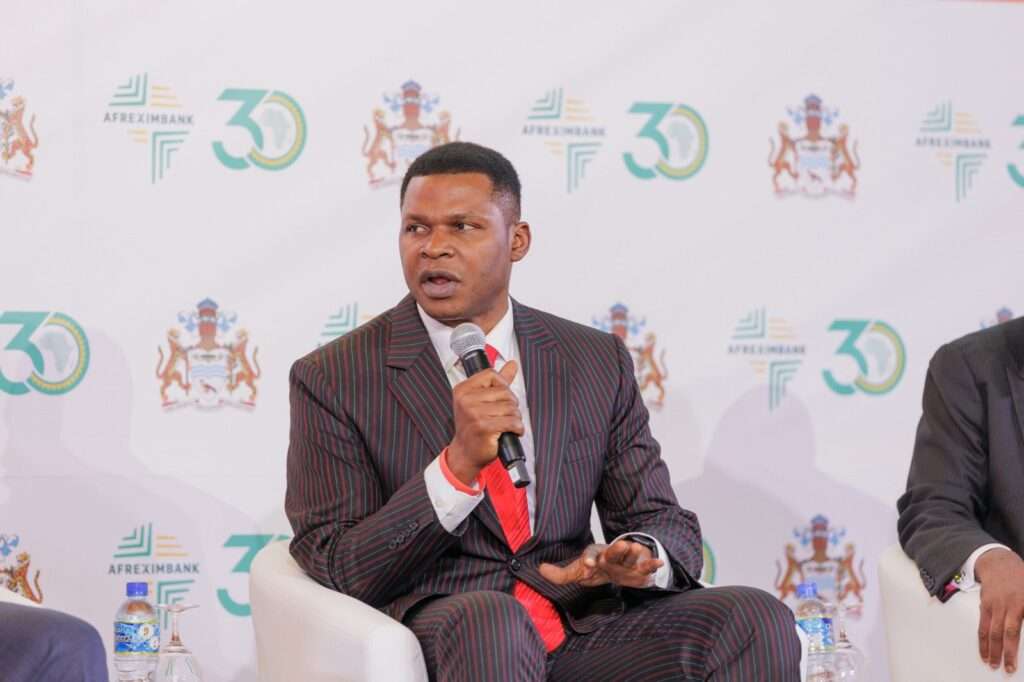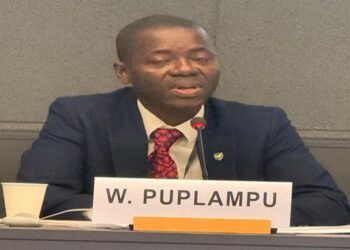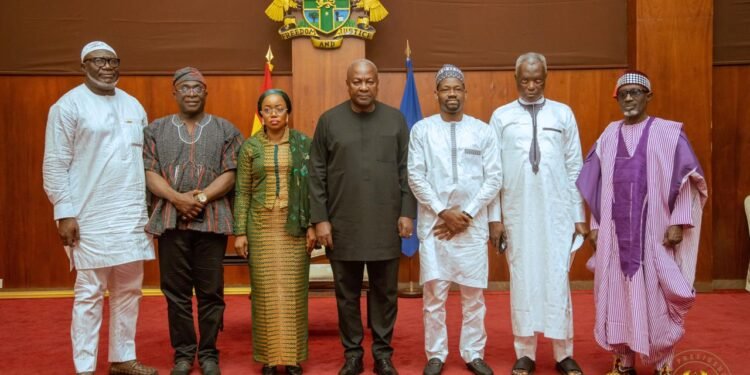Ghana is actively positioning itself as a key player in Africa’s energy sector, with the Ministry of Energy and Green Transition working diligently to attract substantial investments in oil, gas, and renewable energy.
The country’s efforts were highlighted during International Energy Week in London, where Ghana’s Minister of Energy and Green Transition, John Abdulai Jinapor, emphasized the country’s readiness to become a major energy investment destination.
Speaking at the event, Minister Jinapor underscored Ghana’s commitment to creating a conducive business environment for both foreign and regional firms.
“Ghana is determined to foster an energy sector that is attractive to investors.
“Our goal is to not only increase production but to ensure that our policies promote a sustainable and mutually beneficial energy environment.”
John Abdulai Jinapor, Minister of Energy and Green Transition
The collaboration between the Ministry of Energy and Green Transition and the African Energy Chamber (AEC), which represents the voice of Africa’s energy sector, was also pivotal.
Ghana’s energy sector is poised for substantial growth, with the country holding significant oil and gas reserves.
According to the World Bank, Ghana has oil reserves estimated at 1.1 billion barrels and gas reserves of 2.1 trillion cubic feet. With these valuable resources, Ghana is working to boost exploration and field development through significant investments in the sector.
Over the next decade, Ghana plans to develop more than 17 oil and gas projects, which will play a crucial role in meeting growing energy demand both locally and internationally.
These developments are expected to create thousands of jobs and bring considerable revenue into the economy.
The government is also implementing new regulatory reforms, such as amendments to laws requiring companies to allocate a minimum of 15% of each project to the state as free and carried interest.
Additionally, the country is considering more flexible oil royalty regimes to incentivize further investment.
Leading Energy Players in Ghana

During the meeting, NJ Ayuk, Executive Chairman of the AEC expressed support for Ghana’s energy ambitions, pledging to conduct a working visit to the country to explore potential investment and collaboration opportunities.
“The AEC is committed to working closely with the Ministry of Energy and Green Transition to unlock the full potential of Ghana’s energy resources and promote sustainable growth in the sector.”
NJ Ayuk, Executive Chairman of the AEC
Ghana’s energy sector is already home to several major players, including global energy giants such as Eni, Tullow Oil, and TotalEnergies.
Eni has a strong presence in Ghana, working on exploration and refining sectors, including the Offshore Cape Three Points (OCTP) project, which is an integrated oil and gas development.
Similarly, Tullow Oil has been instrumental in the development of the Jubilee and TEN fields, contributing significantly to the country’s oil production.
The AEC has played a crucial role in supporting Ghana’s energy aspirations, and Ayuk expressed optimism about the country’s potential.
“The AEC looks forward to our upcoming working visit to Ghana.
“We are excited to engage with government officials and energy stakeholders to drive growth in the sector, ensuring that Ghana continues to be a beacon for energy investments across Africa.”
NJ Ayuk, Executive Chairman of the AEC
With a robust energy portfolio, new regulatory reforms, and growing support from international partners, Ghana is positioning itself as a key energy hub not only in Africa but also globally.
The coming years are expected to see Ghana continue to make significant strides in transforming its energy sector into a major player in the global energy landscape.
With growing international interest, proactive energy policies, and large-scale infrastructure projects in development, Ghana is on course to solidify its status as a leading energy investment hub in Africa.
The coming years will be crucial in determining the success of these initiatives, but the nation’s robust energy strategy and investor-friendly approach position it favorably in the global energy market.
READ ALSO: Mahama’s SONA Criticized As Populist And Unrealistic























